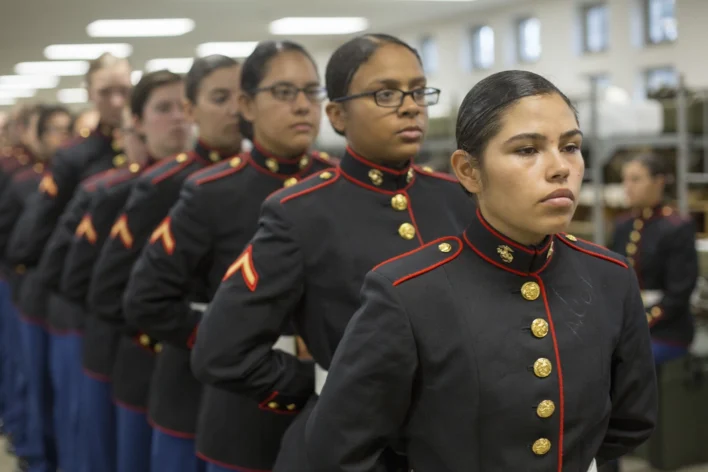What Women Veterans Should Know About VA Healthcare

Women are critical in the U.S. military, serving in various capacities across all branches, in combat and elsewhere. The Department of Veterans Affairs (VA) has expanded its services to women in recent years, and if you aren’t sure what resources are available, here’s what you need to know about VA Women’s Health Reengagement Training (heaRT) and additional programs you can use outside of the VA.
What Is Women’s Health Reengagement Training (heaRT)?
Women’s Health Reengagement Training (heaRT) was created specifically for women Veterans to ensure they have access to the information and resources they need. The VA’s Office of Women’s Health (OWH) engaged directly with women veterans through focus groups to understand their priorities and concerns.
Based on these discussions, OWH designed the training to address five key concerns—how the VA supports women Veterans, how it meets their unique healthcare needs, how it provides mental health support, the telehealth services available, and how to enroll in and use the VA’s healthcare.
The heaRT training empowers women to take full advantage of the healthcare benefits they’ve earned through the VA and ensures they feel supported in every aspect of their health and well-being.
Read next: Military Spouse and Dependents Benefits
Addressing Common Misconceptions about VA Health Care for Women Veterans
Many women veterans have concerns about accessing VA health care, but these concerns are often based on misconceptions. The VA has taken steps to make sure that women receive the care they need. Below are some common concerns and how the VA addresses them.
Concern: “The VA doesn’t offer women’s healthcare services.”
The VA offers a full range of services tailored to women’s needs, from preventive care to gynecological services, reproductive care, preconception planning, and menopause support. Women’s Health Primary Care Providers (WH-PCPs) are specially trained to address these unique needs.
Concern: “VA healthcare is only available for men.”
VA healthcare is available to all veterans, and the VA has expanded its services to meet the growing needs of women veterans in the Center for Women Veterans (CWV) and the Office of Women’s Health (OWH).
Concern: “The VA’s healthcare is worse than care in the private sector.”
Studies have shown that the quality of care at VA facilities is on par with or even better than that provided by the private sector.
Concern: “I’ll wait too long to get care at the VA.”
The agency has been actively working to reduce wait times and improve access to services. In many cases, the wait times for services at the VA are shorter than those in the private sector.
Concern: “I have other types of coverage, so I’m not eligible.”
Private health insurance, Medicare, or TRICARE does not disqualify you from VA health care.
Concern: “It’s too late for me to sign up for VA healthcare.”
Enrolling in services is not time-limited. You can apply for benefits anytime, and there is no registration deadline.
Concern: “I didn’t serve in combat, so I’m not eligible.”
Combat service is not a requirement for VA healthcare eligibility. Women veterans can qualify for VA health care based on several criteria, regardless of their combat experience.
Read next: Military Spouse and Dependents Benefits
What Are the Unique Health Challenges and Growing Needs of Women Veterans?
Women Veterans have unique healthcare needs, as evidenced by higher rates of risk factors for conditions like chronic pain and osteoporosis. Many report feeling unwelcome when seeking women-specific care in a predominantly male health system. Also, their military experiences and health outcomes differ significantly from men’s.
According to the VA:
- One in three women Veterans has experienced sexual assault or harassment during their service, known as Military Sexual Trauma (MST).
- Women veterans also have higher rates of PTSD and depression compared to their male counterparts and non-veteran women.
Disparities in health outcomes exist among veterans of color, as well as LGBT veterans, and those living in rural areas:
- Veterans in rural communities experience higher rates of diabetes and hypertension.
- Black women veterans face elevated risks for cardiovascular disease due to chronic stressors such as structural discrimination.
- Diabetes is more prevalent among Hispanic, Black, Asian, and American Indian/Native American women compared to white women.
- LGBT women veterans are disproportionately affected by suicide and substance abuse, often linked to experiences of discrimination and stigma.
Women veterans are expected to increase by 18,000 annually for nearly a decade. In response, the VA’s Office of Women’s Health launched initiatives like the Women’s Health Mini-Residency training to ensure that primary care and emergency care providers can address the full range of women’s health needs. Over 12,000 providers have completed the training, earning the designation of “Women’s Health Primary Care Provider” (WH-PCP).
Non-VA Healthcare Sources for Women Veterans
Below are some non-VA resources (many of which are supported by the VA) for women veterans’ healthcare.
General Healthcare for Veterans (Non-VA
- Community Care Network (CCN) Through Tricare & Optum: Many civilian doctors, urgent care, and specialists accept VA referrals via CCN. You may qualify if the VA can’t provide timely or nearby care.
- America’s Warrior Partnership (AWP): Connects veterans to local healthcare providers, benefits, and wellness programs.
- FQHCs (Federally Qualified Health Centers): A search engine for community health centers offering low-cost primary care, dental, and mental health services for uninsured and underserved populations, including veterans.
Mental Health and PTSD Support
- The Cohen Veterans Network: Provides free or low-cost mental health counseling for veterans and families.
- Wounded Warrior Project – Warrior Care Network: Provides intensive mental health programs for PTSD, TBI, and depression. Partnered with four major medical centers (Rush, Emory, UCLA, MGH).
- Give an Hour: Offers free mental health counseling from licensed professionals.
The following services are more specific to women’s health and wellness.
General Women’s Healthcare and Reproductive Services
- Planned Parenthood: Offer birth control, STI testing, cancer screenings, and abortion services, a well as discounts based on income with some telehealth services.
- Power to Decide – Abortion Finder: Helps locate trusted and legal abortion providers nationwide.
- Aid Access: Provides medication abortion by mail for those in restrictive states.
- If/When/How: Repro Legal Helpline: Free legal advice for those seeking or self-managing abortion.
In Vitro Fertilization (IVF) and Fertility Services
- Military Family Building Coalition: Provides support for fertility treatments, including IVF and surrogacy.
- Livestrong Fertility Program: Discounts on egg freezing, IVF, and sperm banking for those affected by cancer.
- Resolve: The National Infertility Association: Resources, financial assistance, and advocacy for fertility treatments.
Pregnancy and Maternity Support
- March of Dimes: Support for pregnancy, newborn care, and high-risk pregnancies.
- Postpartum Support International (PSI): Mental health and postpartum support for new mothers.
Read next: Military Spouse and Dependents Benefits


